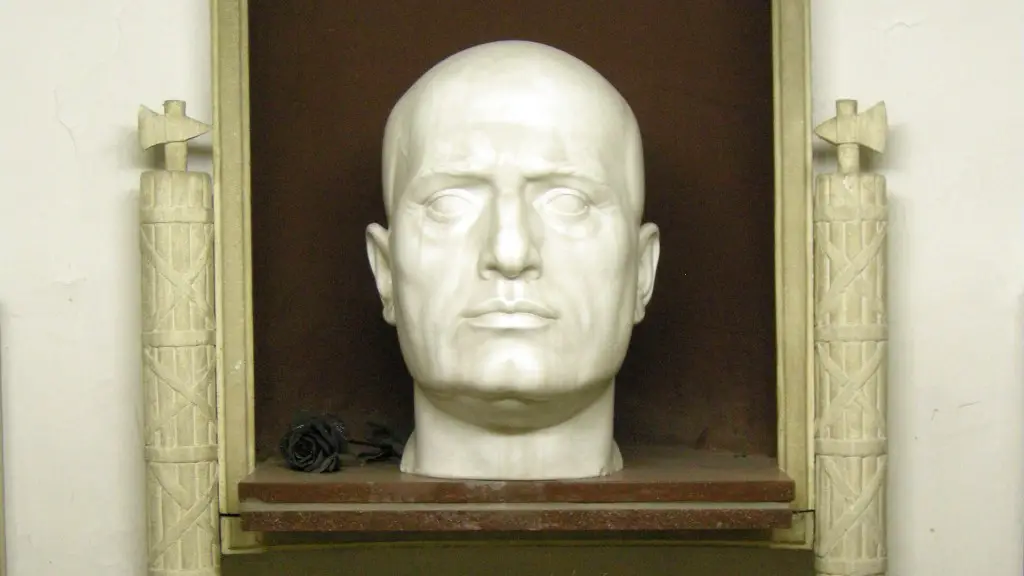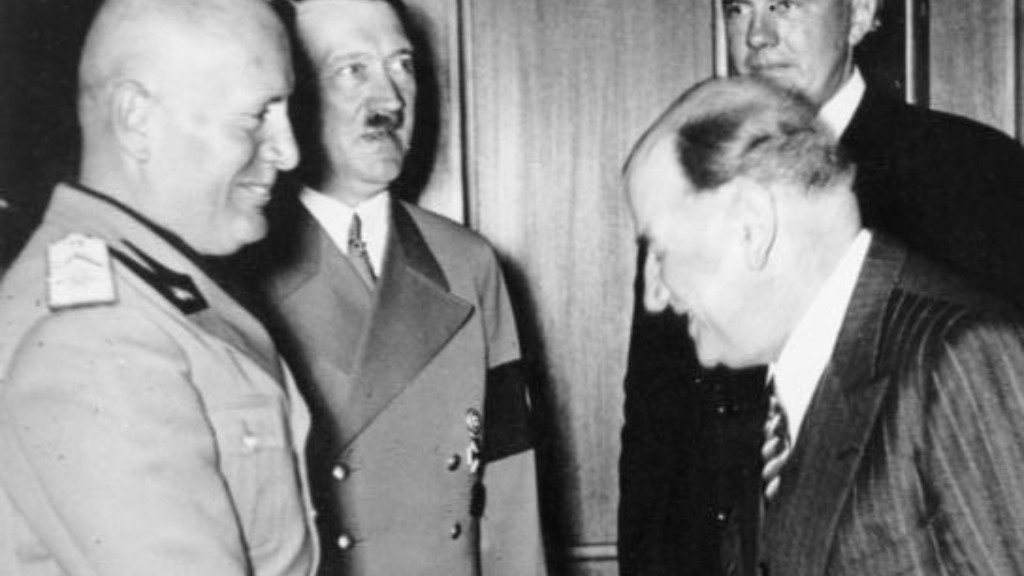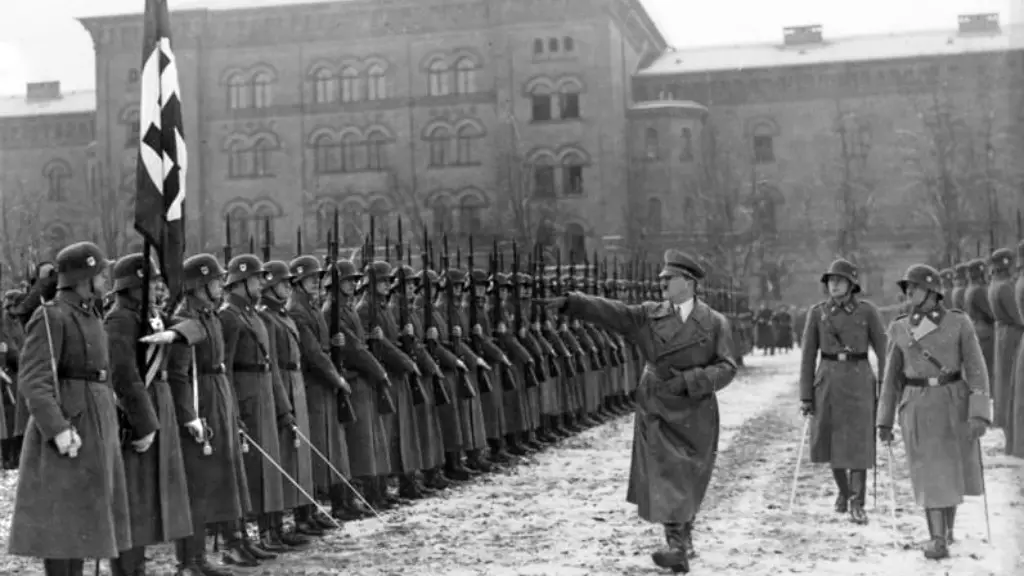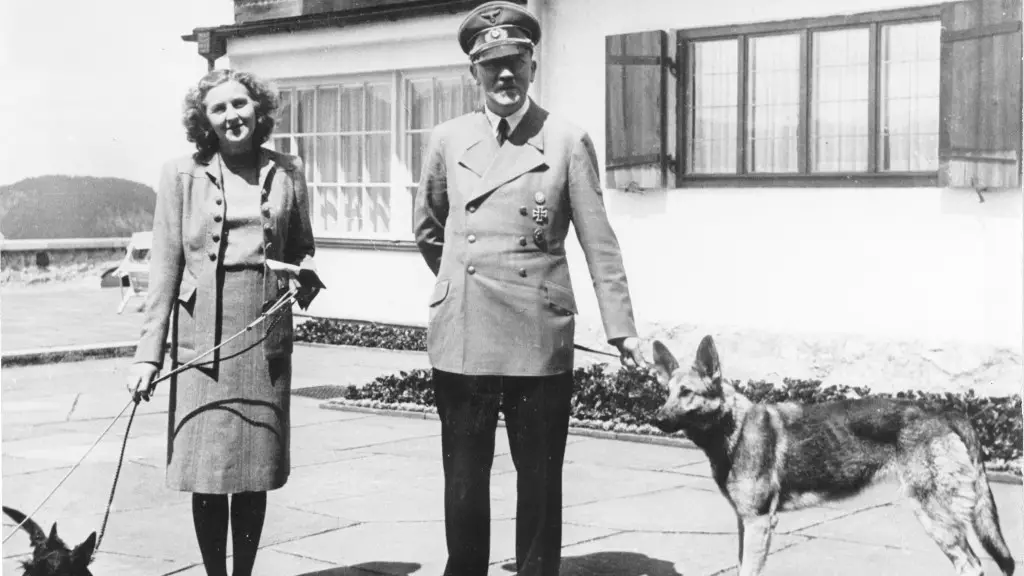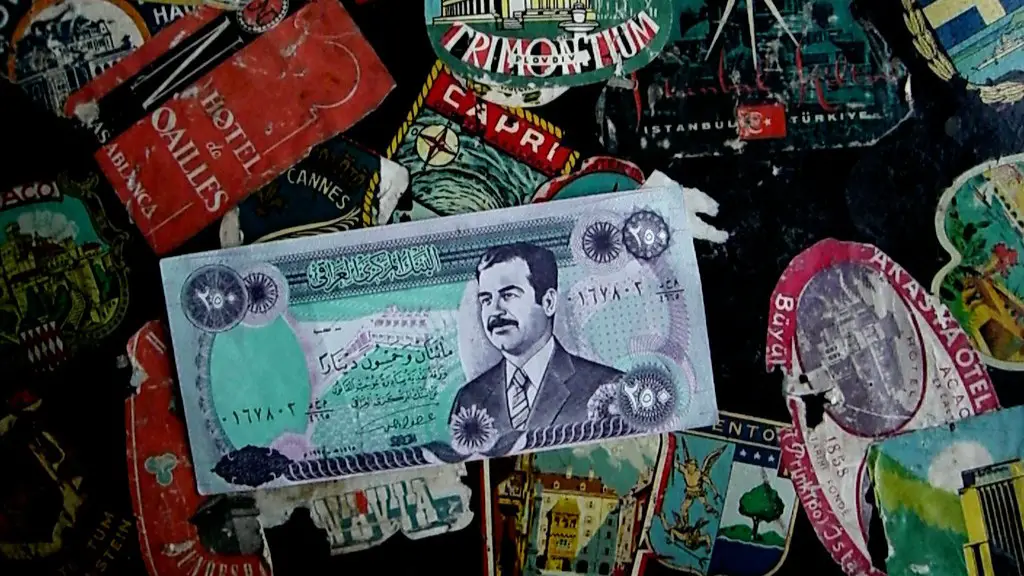Many people believe that Benito Mussolini was a nationalist. He certainly was a national leader, and he promoted Italian nationalism. However, some historians argue that Mussolini was not a true nationalist because he was more concerned with his own power than with promoting the interests of the Italian people.
Yes, Benito Mussolini was a nationalist.
What type of government did Benito Mussolini have?
In Italy, Benito Mussolini used his charisma to establish a powerful fascist state. The Italian fascist state was based on the principles of totalitarianism, national solidarity, and anti-communism. Mussolini and the fascist party rose to power in the aftermath of World War I, when many Italians were disillusioned with the liberal government that had led the country to defeat. Under Mussolini, the fascist state became a one-party dictatorship that controlled every aspect of Italian society. The fascist regime was characterized by its aggressive foreign policy, its domestic repression of political opponents, and its use of propaganda to promote the cult of Mussolini.
Benito Mussolini was an Italian political leader who became the fascist dictator of Italy from 1925 to 1945. Originally a revolutionary socialist and a newspaper journalist and editor, he forged Italy’s violent paramilitary fascist movement in 1919 and declared himself prime minister in 1922. Mussolini was an advocate of totalitarianism, and under his rule, the Italian government became increasingly autocratic. He suppressed freedom of speech and the press, and instituted strict censorship. Opponents were brutally persecuted. In 1935, Mussolini invaded Ethiopia, and in 1940 he allied Italy with Nazi Germany. As a result of these actions, Italy became embroiled in World War II. Mussolini was overthrown in 1943, and he was arrested and executed in 1945.
What ideology did Mussolini believe in
Fascism is a political ideology that seeks to create a totalitarian state that is ruled by a strong leader who controls the military, media, and economy. Fascism emphasises nationalism, and often racism and xenophobia. It is opposed to democracy, liberalism, and communism.
Italian fascism was founded in 1919 by Mussolini. It rose to power in 1922, after the March on Rome. Mussolini ruled Italy as a dictator from 1922 to 1943. Italian fascism collapsed in 1943, after Italy was defeated in World War II.
Fascism has been a controversial political ideology since its inception. Critics argue that fascism is a form of dictatorship that is opposed to democracy and individual freedom. Supporters argue that fascism is a necessary response to the problems of liberalism and communism.
During this period, Mussolini considered himself an “authoritarian communist” and a Marxist. He described Karl Marx as “the greatest of all theorists of socialism.”
What type of dictatorship was Mussolini?
Mussolini came to power in 1922, and his fascist regime lasted until 1943. During that time, Mussolini pursued a number of policies aimed at consolidating power and promoting his fascist ideology. He suppressed political and civil rights, instituted strict censorship, and cracked down on dissent. Mussolini also pursued an aggressive foreign policy, invading Ethiopia in 1935 and aligning himself with Nazi Germany during World War II.
Mussolini’s rule was characterized by totalitarianism, violence, and propaganda. He was a divisive figure, and his legacy is still the subject of debate. Some view him as a cruel dictator, while others see him as a charismatic leader who improved Italy during his time in power.
While both communism and fascism are systems that advocate for a certain level of equality, they are quite different in their approach. communism is a system that is based around economic equality and advocates for a classless society. fascism, on the other hand, is a nationalistic, top-down system with rigid class roles that is ruled by an all-powerful dictator.
How was Benito Mussolini a nationalist?
The Fascist Party, under the leadership of Benito Mussolini, was a right-wing political party that advocated for Italian nationalism. The party was known for its black shirts, which were the uniforms of its members, and for its program of terrorism and intimidation against its opponents, which often took the form of beatings and vandalism.
Mussolini developed the Italian fascist state with the goal of establishing himself as a dictator. He would eventually be referred to as ‘Il Duce’ or ‘the Leader.’ The Italian totalitarian state would operate a few key elements. First, Mussolini constructed the Italian parliament such that it benefitted the fascists.
What was Mussolini’s famous slogan
Benito Mussolini’s totalitarianism is defined by the complete control of the state over the individual. The individual has no rights or protections outside of the state, and the state can do whatever it pleases, without regard for individual rights. This is the opposite of the classical liberalism that defined the West prior to the rise of Mussolini and Hitler.
Mussolini was a socialist before becoming a fascist. While living in Switzerland from 1902 to 1904, he cultivated an intellectual image and wrote for socialist periodicals such as L’Avvenire del Lavoratore (The Worker’s Future).
What are the 5 main ideas of fascism?
Fascist movements share a number of common themes, including authoritarianism, nationalism, hierarchy and elitism, and militarism. These themes help to explain other aspects of fascism, such as its anti-egalitarianism and totalitarianism. Fascism is founded on the idea of a strong, centralized state that is controlled by a single leader. This leader is held up as a figurehead for the nation, and promotes the idea of a unified, powerful country. Fascism also relies heavily on the idea of national pride, and often promotes the idea of racial superiority. This can be seen in the way that fascist regimes often promote the idea of a pure, Aryan race. Finally, fascism places a great emphasis on military power, and often uses military force to consolidate power and maintain control.
Fascism as a political movement emerged in the early twentieth century in Europe, in response to the perceived failures of liberalism and democracy. Fascists sought to promote a strong, centralized government that would empower the state to take control of the economy and suppress any opposition. This often involved the use of violence and intimidation against opponents. While fascism achieved some success in the early years, it was ultimately defeated in World War II.
A fascist ruler has complete power over a country, while rulers in socialist countries share power among the states. Fascism is a dictatorial form of political ideology, while socialism is an egalitarian form of political ideology.
Mussolini’s cardinal rule for socialism was to replace international socialism with national socialism, which he called fascism. This inspired Hitler to copy much from Mussolini and call his version of fascism national socialism.
Why was Mussolini a weak leader?
Mussolini was a very effective leader in many ways. He was able to consolidate power and use propaganda to his advantage. He also mended relations with the Catholic church, which was a major strength. However, his economic policies were ill-thought out and his foreign policy was a major weakness. His relations with the Nazis were also a weakness.
In the 1929 Lateran Treaty, Mussolini recognized the Pope as sovereign ruler of the Vatican City state, and Roman Catholicism became the state religion of Fascist Italy. This resulted in a close relationship between the Fascist government and the Catholic Church. The Church supported the Fascists, and in return the Fascists supported the Church.
What are the three rules of fascism
Fascism is a political ideology that is based on a strong sense of national identity and pride. It emphasises the need for a strong and powerful government that can lead the nation to success. It also has a strong element of populism, in that it appeals to the common people and seeks to mobilise them behind the fascist cause. Finally, it believes that society is in decline and needs to be rejuvenated through a process of palingenesis, or rebirth. This can be seen in the way that fascist regimes often seek to promote a return to traditional values and a rejection of modernity.
What is called in America capitalism?
Capitalism is an economic system in which the means of production are privately owned and operated for profit. In a capitalist economy, the governmentusually provides a legal and regulatory framework within which the economy operates, but the government does not own or control economic resources.
Conclusion
Yes, Benito Mussolini was a nationalist. He was the founder of the National Fascist Party and led Italy as its Prime Minister from 1922 to 1943. Mussolini was a strong advocate for a unified Italian state and was instrumental in the country’s transformation into a one-party dictatorship.
In conclusion, Benito Mussolini was a nationalist. He was born in a small Italian town and was always proud of his Italian heritage. He was a strong opponent of communism and fought to keep Italy a separate and independent country. Mussolini was a great speaker and was able to convince many Italians to support his cause. He was a dictator but was loved by many of his people. He was assassinated in 1945 by a communist partisan.
